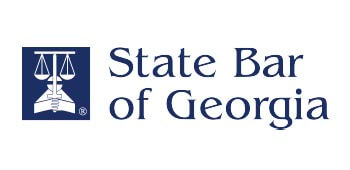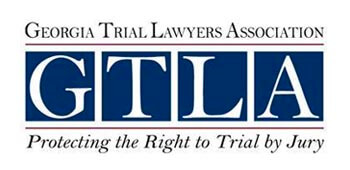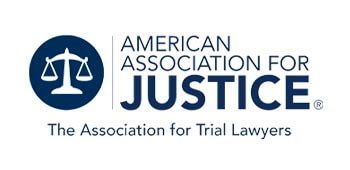Understanding the Basics of Wrongful Death in Georgia: What Families Need to Know Before Taking Legal Action
Not every loss leads to a legal claim. But when someone dies under circumstances that could have, and should have, been avoided, Georgia law gives surviving relatives a way to respond. This is not about criminal charges or courtroom punishments. It is about recognition, legal accountability, and creating a path for families to recover what was taken from them.
At Prine Law Group, we have worked with families in Macon and the surrounding areas who never thought they would be part of a lawsuit. Our role is to make sense of the process, explain what matters legally, and help people focus on their next step, not legal jargon.
Wrongful Death Law Is About More Than Just Compensation
It is true that financial recovery is part of any civil case. But wrongful death claims are also about confirming that a death should not have happened. Under Georgia law, what matters is not just that someone passed away, but that their death likely would not have occurred if basic care or responsibility had been taken.
Some situations where this can apply:
- A driver failing to stop at a red light, leading to a fatal crash
- A building owner ignoring a long-reported hazard
- A care facility that did not monitor someone properly
- A workplace with clear safety violations
- A medical provider missing something that should have been caught
The question at the center of each case: was this preventable?
Wrongful Death and Criminal Law Are Separate
If someone is charged with a crime connected to a death, such as DUI or manslaughter, it does not stop a family from filing a civil case. The two systems are separate. Civil cases are about compensation. Criminal cases are about punishment. Sometimes they happen together. Sometimes only one moves forward. Either way, the outcome of one does not control the other.

Who Has the Right to File in Georgia
The law sets a clear order:
- Surviving spouse
- Children, if there is no spouse
- Parents, if there are no spouse or children
- The personal representative of the estate, if none of the above exist
In families with multiple generations or complex relationships, this can get confusing. We help determine who has legal standing so that the claim is filed correctly from the beginning.
Types of Losses That Can Be Recovered
There are two primary areas of compensation under Georgia’s wrongful death statute:
- Full value of the person’s life: This includes not just what they earned, but the time they would have spent with family, in community, or doing what mattered to them.
- Expenses tied to the death: These can include final medical care, funeral costs, and any pain the person experienced before they passed.
Each situation is different. What one case may value highly, another may not include at all. A retired grandparent and a young working parent bring different claims, but both deserve careful evaluation.
How Long You Have to Act
In most cases, Georgia gives families two years to file a wrongful death claim. That time begins on the date of death. But there are exceptions. If there is a related criminal case, or if the estate has not gone through probate, the time to file might pause temporarily. Missing the deadline often means the case cannot be filed at all.
Evidence in Wrongful Death Cases
No matter how clear the loss feels, a civil claim still needs proof. That includes what happened, and how the death changed the lives of those left behind. We help build these cases using:
- Medical records
- Autopsy or coroner reports
- Police documentation
- Statements from people who witnessed the event
- Testimony from professionals in fields like safety, medicine, or finance
The legal side of a case can never measure grief. But it can, and does, recognize impact when presented correctly.
Why It Helps to Work With a Local Attorney
Wrongful death claims in Georgia are filed in civil court. Often that is Bibb County Superior Court or another local venue. Working with an attorney who knows the local process helps with timing, procedure, and presentation. It also means you have someone nearby when questions come up or something changes.
Our office knows what these cases require, not just legally, but emotionally.
We Are Here When You Are Ready
Some people call a lawyer within a week. Others wait months. There is no single right moment. But if you are wondering whether something could have been done differently, and whether that might matter in court, it is worth a conversation.
📞 Call Prine Law Group at (478) 257-6333 or contact us online. The consultation is confidential and free of charge.
What Families in Georgia Should Know Before Filing a Wrongful Death Claim – FAQ
1. How do I know if this qualifies as a wrongful death under Georgia law?
If the person died due to someone else’s actions or failure to act, and would have had a personal injury case if they had survived, Georgia law may treat it as wrongful death.
2. How soon should I begin collecting information?
As early as possible. Witnesses move. Surveillance gets erased. Memories fade. The more quickly the evidence is secured, the stronger the foundation of your case.
3. Does the cause of death change the legal process?
Yes. A case involving a medical provider is built differently than one involving a construction site. Each type requires its own preparation and review.
4. What if there is also a criminal case?
You do not have to wait. Civil and criminal cases run on different tracks. It is common for a wrongful death claim to begin while a criminal case is still pending.
5. Can multiple family members file claims separately?
No. Only one wrongful death claim may be filed. The person with the legal right files the case, and other eligible survivors are included in the process.
6. Will the case be public?
If it settles out of court, the details can remain private. If it goes to trial, much of the record becomes public unless sealed by the court.
7. How do Georgia courts evaluate non-financial harm?
They consider relationships, shared experiences, and the role the person had in family and community life. There is no chart. Each case is evaluated on its own details.





